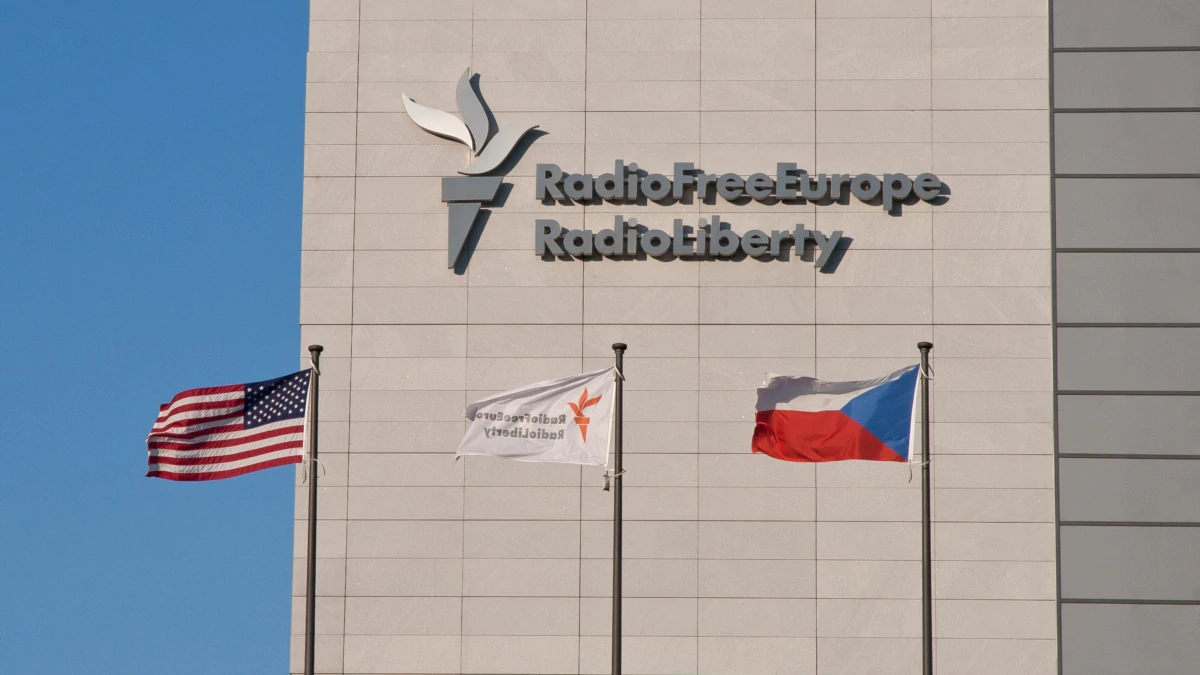
A bipartisan group of top U.S. senators has called on President Vladimir Putin to halt Russia’s “state-sponsored assault on media freedom” through the targeting of RFE/RL.
In a March 12 statement, Democrats and Republicans on the Senate Foreign Relations Committee took aim at the deteriorating media environment in Russia and a clampdown on U.S.-funded RFE/RL under a controversial “foreign agent” law.
Russia’s state media-monitoring agency Roskomnadzor has opened 260 cases against RFE/RL Russian-language news services for failing to mark written and broadcast materials in accordance with onerous regulations. A Moscow court has already levied fines totaling some $1 million in 142 cases.
“Long employed to weaken Russian civil society, the Kremlin is now using onerous ‘foreign agent’ laws as a pretext to silence RFE/RL in Russia, pursuing court cases and fines,” Senators Chris Coons (Democrat-Delaware), Mitt Romney (Republican-Utah), Marco Rubio (Republican-Florida), and Bob Menendez (Democrat-New Jersey), chairman of the Senate Foreign Relations Committee, said in a joint statement.
The senators accused Putin of consolidating control over the media and passing laws to punish critics, while threatening the safety of members of the press.
“In this harsh media environment, RFE/RL has performed an invaluable service to the Russian people, providing them uncensored local news that aims to meet the highest standards of objective journalism,” the senators said.
The string of cases against RFE/RL means that pending appeals, it must pay the fines and come into compliance with regulations or face the potential closure of its operations inside Russia.
Earlier this month the U.S. State Department expressed “deep concern” about what it called Russian government efforts “to clamp down on the exercise of freedom of expression.”
The statement came the same day that a Moscow judge rejected five appeals by RFE/RL against fines imposed on the company under the “foreign agent” law.
Russia’s so-called “foreign agent” legislation was adopted in 2012 and has been modified repeatedly. It requires nongovernmental organizations that receive foreign assistance and that the government deems to be engaged in political activity to be registered, to identify themselves as “foreign agents,” and to submit to audits.
Later modifications targeted foreign-funded media.
In 2017, the Russian government placed RFE/RL’s Russian Service on the list, along with six other RFE/RL Russian-language news services, and Current Time, a network run by RFE/RL in cooperation with VOA.
At the end of 2020, the legislation was modified to allow the Russian government to include individuals, including foreign journalists, on its “foreign agent” list and to impose restrictions on them.
In December 2020, authorities added five individuals to its “foreign agent” list, including three contributors to RFE/RL’s Russian Service. All five are appealing their inclusion on the list.
Roskomnadzor last year adopted rules requiring listed media to mark all written materials with a lengthy notice in large text, all radio materials with an audio statement, and all video materials with a 15-second text declaration.
RFE/RL President Jamie Fly has called the regulations “orders to deface our content platforms and intimidate our audiences.” He added that RFE/RL will continue “to object, protest, and appeal these requirements.”
This post was originally published on Radio Free.